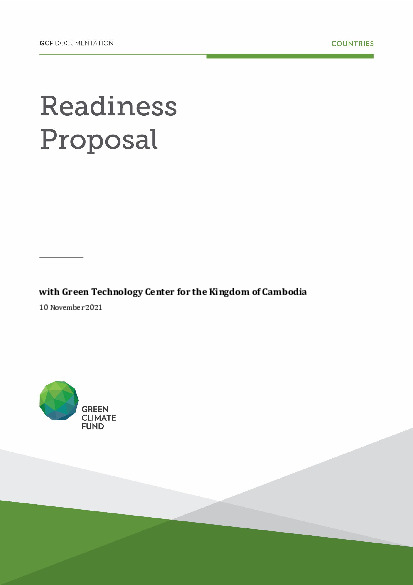Climate Technology Deployment Roadmap for E-mobility Ecosystem in Cambodia

Climate Technology Deployment Roadmap for E-mobility Ecosystem in Cambodia
Cambodia’s transport sector is currently the main GHG emission contributor in the energy sector, sharing 53.1% (5,094 GgCO2eq) of the total energy-related emissions in 2016 alone. The GHG emission from the transport sector has increased drastically due to the growing economy and an increasing number of vehicles in the country. This figure is expected to increase up to 10,816 GgCO2eq by 2050.
There is a high potential to mitigate GHG emissions by switching from conventional vehicles to greener alternatives. Transitioning away from ICEs (Internal Combustion Engine) to EVs (electric vehicles) will contribute to reducing GHG emissions in the congested urban area, together with significant co-benefits including improvement in air quality and public health, reduction of noise, and positive impacts on the urban ecosystem.
According to Cambodia’s INDC (2015), it aims to reduce its total GHG emissions by 3% (390 GgCO2eq) from the transport sector relative to the business-as-usual (BAU) baseline. Also, according to its most recent Biennial Update Report (2020), Cambodia plans to fulfill this aim by adopting mitigation measures such as promoting mass public transport, improving operation and maintenance of vehicles through motor vehicle inspection and eco-driving, and the increased use of hybrid cars, electric vehicles, and bicycles
In order to achieve the said target, Cambodia has been adopting different strategies and policies in the transport sector. However, despite the country’s past and ongoing efforts, the impact of individual projects and the development of sustainable e-mobility system have remained limited due to barriers and gaps in the area of policy and regulations, institutions, technology, finance, and infrastructure. Thus, for a swift and efficient transition towards low-carbon transportation, Cambodia needs to streamline its ongoing efforts through the establishment of an overarching policy framework that can create an environment for sustainable e-mobility deployment.
Against this backdrop, this Readiness proposal aims to increase Cambodia’s readiness in deploying e-mobility through a Climate Technology Deployment Roadmap (CTD Roadmap) for the E-mobility ecosystem. The roadmap will focus on setting up the long-term strategy in the deployment of e-mobility technology in Cambodia by strengthening the country’s readiness in policy and regulations, institutions, technology, finance, and infrastructure in order to build an enabling environment that helps the fulfillment of its NDC in the transport sector.
This readiness proposal will serve to contribute to a major paradigm shift towards low-emission transportation in Cambodia through the following outcome areas:
- Relevant country stakeholders identified and inter-institutional mechanism set up for the development of CTD Roadmap for e-mobility ecosystem in Cambodia
- CTD Roadmap for e-mobility ecosystem setting out long-term policy and technology goals and actions in consideration of Cambodia’s NDC target in the transport sector
The immediate beneficiaries of this Readiness proposal are the government entities who will be provided with overarching guidance in transitioning to an e-mobility ecosystem, such as Cambodia’s Ministry of Economy and Finance, Ministry of Public Works and Transport, and Ministry of Mines and Energy. As the project progresses, the citizens of Cambodia can further benefit from clean air and improved urban transport options.